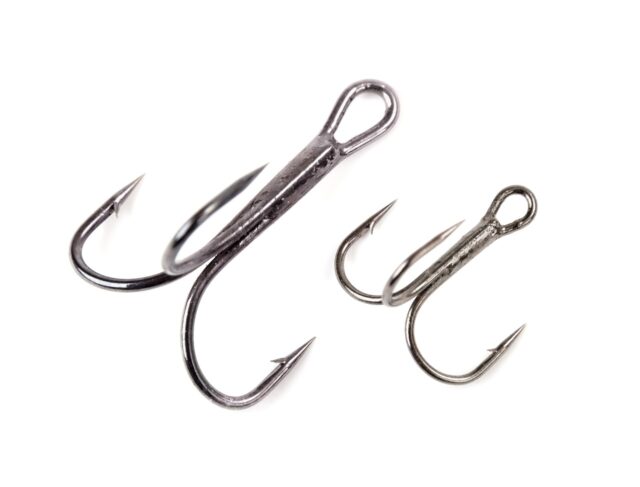Language can be a tricky thing. For all intensive purposes, it is always evolving, and you need to stay on top of all the changes if you do not want to be treated as an escape goat. After all, it’s a doggie-dog world out there, and you need to be careful not to make any foe pars that might turn you into a social leopard.
If you found the previous paragraph to be annoying, even slightly rage-inducing, then you might have spotted that it contained a few tongue and cheek mistakes. To be specific, it included a bunch of common sayings that people tend to use incorrectly. And there are others…
10. You’ve Got Another Thing Coming

“Out there is a fortune waitin’ to be had
If you think I’ll let it go, you’re mad
You’ve got another thing comin’”
Those are the immortal words of Rob Halford and, really, who are we to argue with Judas Priest? And yet, argue we will, because the correct version of the expression is you’ve got another think coming. That is the saying that you will find in the Oxford English Dictionary and most other dictionaries, although it would be fair to say that the alternative version with “thing” has become more popular, thanks in no small part to Judas Priest’s 1982 metal anthem.
The phrase is a great example of an “eggcorn” – a linguistic slip-up where people replace one misheard word with another one that they feel makes sense within the context of the phrase. Because there is some logic behind the switch, these incorrect sayings are some of the most pervasive ones that you can find, so it is likely that both versions are here to stay for the time being.
9. Tow the Line

Another very common eggcorn is the expression tow the line, meaning “to conform to an established standard.” The correct phrase is to toe the line, with an “e” instead of “w.” The origins of the expression are debated, although one popular myth claims that it came from British politics – the House of Commons has a pair of lines painted on the floor, separating the front benches of the two main parties. Then, during a heated debate, if an MP got a little too close to his opposing members, the Speaker of the House reminded him to toe the line, meaning to get back behind the line on the floor.
As we said, this is a myth, but during the 19th-century expressions using “toe” as a verb were more common, such as toe the mark, toe the trig, and toe the scratch. Therefore, back then the expression toe the line would not have caused too much confusion. But nowadays, the word tow is more commonly used as a verb, so people who first heard the phrase assumed it was written with a “w.” They disseminated this misinformation and, thus, a new eggcorn was born.
8. On Tender Hooks

When someone is on tenterhooks, that means that that person is “waiting nervously for something to happen.” It’s still a pretty common expression, although many people incorrectly say “on tender hooks,” which, if you think about it, doesn’t really make any sense since hooks cannot be tender.
The problem here is that most people have no idea what a tenter is, so they replace it with a more familiar word. A tenter is a simple device that has been used for hundreds of years in making cloth. It is a wooden frame with loads of hooks on it, and the cloth is stretched on it to prevent it from shrinking and creasing while it dries. So you can see, someone with anxiety being on tenterhooks does make a bit more sense.
7. Nip It in the Butt

To nip something in the bud means to suppress something at an early stage before it has a chance to turn into a much bigger problem. If you are into gardening or simply know your idioms, then you’ve probably been using this phrase correctly. Other people, however, have a tendency of using the similar, but incorrect variant of nipping it in the butt.
The meaning behind this expression is actually pretty straightforward. When you are tending to your garden, if you do not want a flower to blossom for whatever reason, you simply cut or nip it while it is still a bud before it gets a chance to bloom. The phrase has been around for hundreds of years and even replaced the older idiom of nipping it in the bloom.
The alternative nip it in the butt is yet another example of an eggcorn, but no posteriors need to be harmed in order to use this idiom correctly.
6. Bold-Faced Lie

If you ever want to accuse someone of saying an obvious and shameless lie, make sure you call them a bald-faced liar, not a bold-faced one.
At first glance, the second option makes some sense. If someone is being an evident and unapologetic deceiver, you could imagine them doing it with a brazen or bold expression on their face, hence bold-faced. But the correct expression is bald-faced, meaning a face that is completely uncovered by facial hair or a mask or anything of the sort.
If you do want an alternative, you could use barefaced lie. In fact, that was the original expression, which has been in use since the early 1800s. However, around the halfway point of the 20th century, American publications started using bald-faced lie, for whatever reason. In that case, the substitution was correct because the two words still meant the same thing, whereas bold-faced has a different meaning.
5. Wet Your Appetite

The right form of this expression is to whet your appetite, spelled with an “h.” This is a tricky one, however, because the similar idiom wet your whistle, spelled without an “h,” which means to have a drink, is correct. Therefore, it is understandable that people would think that wet your appetite is also correct – you use one for food and the other for drinks, right?
Well, not really, because the two expressions do not mean the same thing. While wetting your whistle means satisfying your thirst, whetting your appetite means almost the exact opposite – to stimulate it or, when used metaphorically, to increase your eagerness.
To whet something means to sharpen it, so it makes a lot more sense in the context of the idiom. Like “tenter,” this is a word that has been around for centuries but has fallen out of use in modern times since most of us rarely take a trip to the blacksmith nowadays to sharpen our swords. That plus the popularity of the similar expression wet your whistle likely explains why people started replacing whet with its more common homophone.
4. Hunger Pains

If you have ever experienced a sense of discomfort, even pain in your stomach area because you have not eaten in a while, you might say that you are feeling hunger pains when, in fact, the correct term is hunger pangs.
This mistake is pretty understandable, even logical. What even is a “pang,” anyway? It is defined as a “brief piercing spasm of pain” and, in a medical context, it specifically refers to hunger-induced cramps.
Again, we are dealing with an antiquated word, which most of us will never, ever use outside of this particular expression. But unlike many other eggcorns, its replacement word also makes perfect sense within the context of the phrase since “pang” and “pain” are synonyms. That is why this is one saying that has not only snuck its way into everyday speech, but can also be found in published texts, so even the professionals get this one wrong every now and then.
3. Pass Mustard

It is time for you to inspect something and see if it meets your expectations. Let’s say that it does. In that case, did it pass muster or did it pass mustard?
It’s the first one if you were wondering. Passing mustard might be common around the dining table but it does not make a lot of sense in this context. To muster, on the other hand, is an old military term, which means to assemble the troops for a variety of reasons such as exercises, inspection, or battle. Therefore, when the soldiers passed muster, that meant that they passed inspection.
The confusion here likely stems from several sources. Obviously, the words “muster” and “mustard” are similar, so some people are bound to mistake them based on that alone. But there is also the expression to cut the mustard. In that case, “mustard” is the correct word and the idiom means the same thing as passing muster, so it is relatively easy for people to get the two jumbled in their heads.
2. Damp Squid

Although many American audiences will be unfamiliar with this term, an English poll suggested that damp squid is the most misquoted phrase in Britain. In case you are unfamiliar with the term, it refers to something greatly disappointing, which fails to live up to expectations, and the correct phrase is damp squib, not squid.
Once again, the problem stems from the fact that the original saying uses an antiquated word that most people simply do not use anymore. A squib is a small firework that burns with a hissing sound before going off with a mild explosion. Fireworks should be kept dry for best results, so you can see why a damp squib would be seen as disappointing and underwhelming. It would literally go out with a fizz instead of a bang.
1. I Could Care Less

Let’s finish up with the most contentious entry on our list, which is also probably the most common – the phrase I could care less, meaning that you are not interested in something or someone at all. The correct phrasing is I couldn’t care less, which makes sense. If you have zero interest, then it would be impossible for your care to go any lower. But if you say that you could care less, then that means that you do care to some degree at the moment.
A lot of people get really irate when they hear this expression used incorrectly. After all, “could” and “couldn’t” are opposites of each other, so they cannot be both used to mean the same thing, right? Well, there are some old examples of I could care less being used properly with the same meaning as I couldn’t care less.
An 1840 edition of London’s Morning Post wrote “It is impossible that he could care less.” In 1864, the Dundee Courier wrote “His bearing towards male acquaintances, of whom he knew little or nothing and could care less…”
In both instances, the negation is included somewhere else in the sentence, so the expression is used correctly. This not only shows us that the phrase could care less has been around for a long time but also reveals the potential origins of this alternative spelling. Of course, without including the negation, the saying still doesn’t make sense, but it has become so popular and common in everyday speech that it probably will not go away anytime soon.